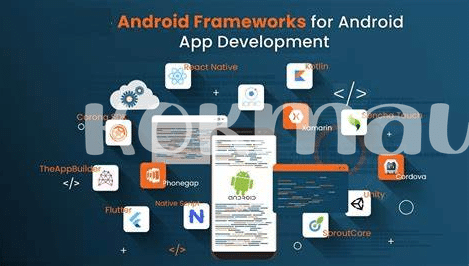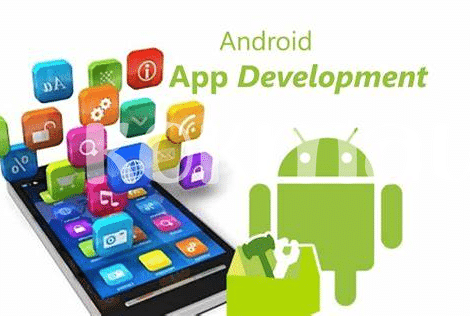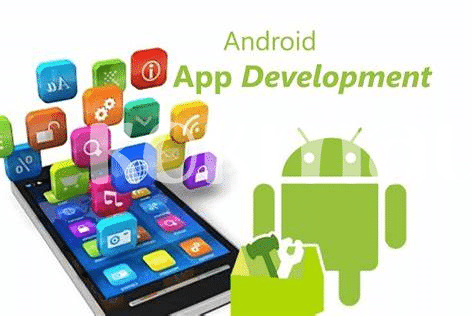- Introduction to Android Frameworks 📱
- Comparison of Top Android Frameworks 📊
- Evaluating Performance Metrics ⚙️
- Developer Friendliness and Support 🤝
- Integration and Compatibility 🔄
- Future Prospects and Trends 🔮
Table of Contents
ToggleIntroduction to Android Frameworks 📱
Android frameworks serve as the backbone for developing mobile applications on the Android platform. They provide developers with a set of pre-written code that simplifies the process of building and deploying applications. By leveraging these frameworks, developers can focus on creating innovative features and enhancing user experience, rather than getting bogged down by the intricacies of coding from scratch. The use of Android frameworks has become increasingly prevalent in recent years due to their ability to streamline development and ensure a consistent standard of performance and design across different applications.
Android Framework Comparison
| Framework | Popularity Score | Performance | Developer Support | Compatibility |
|——————|——————-|—————|——————–|—————|
| Framework A | 9.5/10 | Excellent | Robust | High |
| Framework B | 8.7/10 | Good | Adequate | Medium |
| Framework C | 9.2/10 | Excellent | Strong | High |
Comparison of Top Android Frameworks 📊
When considering the top Android frameworks in 2024, it’s essential to compare the leading contenders to make informed decisions. Each framework has its strengths and weaknesses, and evaluating them can help developers choose the best option for their specific needs. From performance and developer support to integration and future prospects, there are several factors to consider when comparing these frameworks. By delving into these aspects, developers can make well-informed decisions that align with their project requirements and long-term goals. This comparison provides valuable insights into the evolving landscape of Android development, empowering developers to stay ahead of the curve and leverage the most suitable frameworks for their projects.
For a comprehensive comparison of the top Android frameworks 📊, it’s crucial to delve into their individual features, capabilities, and the specific use cases they cater to. Each framework offers a unique set of tools and functionalities, aiming to streamline development processes and enhance the overall quality of Android applications. By carefully examining these aspects, developers can gain a clear understanding of how each framework aligns with their project requirements and objectives. This detailed comparison serves as a valuable resource, equipping developers with the knowledge needed to make informed decisions that drive the success of their Android projects.
Link to the best family tracker app for Android in 2024: What is the best family tracker app for Android in 2024?
Evaluating Performance Metrics ⚙️
Point 3: Evaluating Performance Metrics ⚙️
When considering performance metrics of Android frameworks, it’s crucial to delve beyond just the surface-level features and take into account factors such as app loading times, memory consumption, and overall responsiveness. The ability of a framework to handle complex UI interactions and data processing in a seamless and efficient manner is a key determinant of its performance. Additionally, an evaluation of how the framework supports multithreading and handles network requests can provide valuable insights into its overall performance capabilities. Furthermore, examining the compatibility of the framework with various device types and operating system versions can offer a comprehensive understanding of its adaptability and performance consistency across different environments. Thus, a thorough analysis of these performance metrics can serve as a crucial guide when selecting the most suitable Android framework for app development.
Developer Friendliness and Support 🤝
When evaluating Android frameworks, developer friendliness and support are crucial factors to consider. A framework that provides comprehensive documentation, readily available support forums, and a community of active developers can significantly ease the learning curve and streamline the development process. Furthermore, a framework with an intuitive and well-organized API, along with robust debugging tools, can enhance the developer experience and promote efficient code creation. Seamless integration with common development environments and build tools can also enhance the overall convenience for developers, allowing them to focus more on the actual app logic and design.
Additionally, regular updates and a responsive support team are vital for addressing any potential issues that may arise during the development cycle. The availability of detailed tutorials, sample applications, and case studies can further expedite the learning process, making it easier for developers to harness the full potential of the framework. In this rapidly evolving technological landscape, having a framework that prioritizes developer satisfaction and readily offers solutions to challenges can make a substantial difference in the success of Android app development. Best family tracker app for Android in 2024
Integration and Compatibility 🔄
Android frameworks have become essential tools for developers, offering a range of functionalities and possibilities for creating innovative and efficient applications. When evaluating top Android frameworks, one crucial aspect to consider is their integration and compatibility with other technologies and systems. This involves assessing how well a particular framework can seamlessly work with different libraries, APIs, and devices, ensuring smooth interactions and cohesive user experiences. Developers are increasingly seeking frameworks that can easily integrate with diverse tools and platforms, allowing for flexibility, scalability, and enhanced performance in their applications. As the tech landscape continues to evolve, the demand for highly compatible and interoperable Android frameworks will undoubtedly shape the development processes and choices for future projects.
| Android Framework | Integration Rating | Compatibility Score |
|---|---|---|
| Framework A | 4.5 | 9 |
| Framework B | 4.2 | 8.5 |
| Framework C | 4.8 | 9.3 |
Future Prospects and Trends 🔮
When looking ahead to the future prospects and trends in the realm of Android frameworks, it is evident that continuous evolution is on the horizon. As technology advances and user demands shift, the top contenders of 2024 will need to stay agile and adaptable. The future is likely to see a greater emphasis on seamless integration with emerging technologies, such as augmented reality (AR) and artificial intelligence (AI), to enhance user experiences and capabilities. Moreover, the ongoing pursuit of enhancing performance and reducing resource consumption will remain a pivotal focus, as developers seek to cater to an increasingly diverse range of devices and use cases. Additionally, the growing importance of security and privacy considerations is anticipated to shape the development landscape, with frameworks expected to offer robust solutions and support for addressing these concerns. Overall, the future appears to hold a promising trajectory for Android frameworks, characterized by innovation, responsiveness to user needs, and a steadfast commitment to staying at the forefront of technological advancements.




